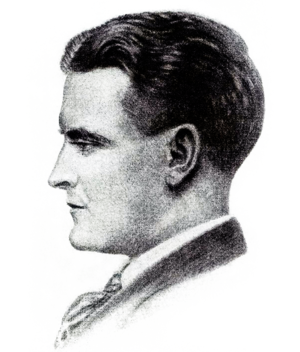Toecovers
The latest memoir we've been reading is Betty MacDonald's "The Plague and I," the 1948 follow-up to her wildly successful 1945 humorous memoir about being a chicken-farmer, "The Egg and I." (The latter book also introducing Ma and Pa Kettle into popular culture, so please appreciate the research that goes into these posts.)
"The Plague and I" is a most unusual follow-up, in that it documents the nine months MacDonald spent in a tuberculosis sanatorium in Seattle in 1938, when she was 30 years old. This was, remember, a time before antibiotics so the treatments and the martial discipline imposed on the patients to cure them seem draconian and almost inhumane today. Yet, despite the harshness and coldness of the regimen -- and, often, the nurses -- she tells the story with warmth, humor, and jaw-dropping details, and credits the sanatorium with saving her life. In the last chapter, she finds that adjusting to "normal" life proves just as difficult as her entry into the sanatorium.
One of the episodes she writes about is the institution's inane "occupational therapy" -- here, "occupational" meaning "to busy one's hands to take your mind off your troubles" rather than, as Betty hoped, "to prepare for a job when we finally make it out of here." Instead, the OT leader has her charges make what Betty calls "toecovers." Her description of toecovers had Liz in stitches so I thought it would be worth preserving here. It's a nice homely word for something this world still needs a name for.
Toecover is a family name for a useless gift. A crocheted napkin ring is a toecover. So are embroidered book marks, large figurines of a near-together-eyed shepherdess, pin-cushion covers done in French knots, a satin case for snapfasteners (with a card of snapfasteners tactfully enclosed so you won't make a mistake and think it a satin case for hooks-and-eyes or old pieces of embroidery thread), embroidered coat hangars, hand-painted shoe trees (always painted with a special paint that never dries), home-made three-legged footstools with the legs spaced unevenly so the footstool always lies on one side, cross-stitched pictures of lumpy brown houses with "The houfe by the fide of the road" worked in Olde Englishe underneath, hand-decorated celluloid soap cases for traveling with tops that once off will never fit back on the bottom, crocheted paper knife handle covers complete with tassel, bud vases made out of catsup bottles, taffeta bed pillows heavily shirred and apparently stuffed with iron filings, poorly executed dolls whose voluminous skirt are supposed to cover telephones.
A toecover is not a thing that follows economic cycles. During the depression when everyone was making her own Christmas presents, toecovers abounded. In good times toecovers are not made at home but are bought in the back of Gifte Shoppes whose main income is from the lending library in the front.
